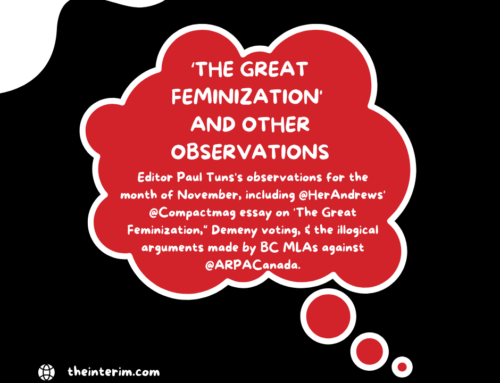Paul Tuns:
 In July, the United Nations’ Population Division predicted that on Nov. 15, global population would hit 8 billion people. Let us be among the first to wish the newborn baby boy or girl, probably born in Africa, the Middle East, or south Asia, a happy birth day and welcome to the human family.
In July, the United Nations’ Population Division predicted that on Nov. 15, global population would hit 8 billion people. Let us be among the first to wish the newborn baby boy or girl, probably born in Africa, the Middle East, or south Asia, a happy birth day and welcome to the human family.
Typically, the UN’s population estimates come with unadulterated negativity over a population explosion, rooted in the 18th century predictions of Thomas Malthus and 1970s-era alarmism of Paul Ehrlich. This year, however, the concern was more muted with the Population Division’s report noting the challenges of both rapidly growing population in the poorer developing world and declining birthrates in the richer West and Far East. An uncharitable view of this juxtaposition would suggest that the authors are worried that there are more poor black Africans and fewer rich white Europeans. Whether or not this racism is conscious, the effects of worrying about global “overpopulation” are undoubtedly seen in the efforts to spread abortion and birth control to every corner of the planet as a form of ideological colonialism, ignoring local customs and mores when it comes to familial relations and sexual behaviour.
The idea that there are too many people for the world to support is rooted in the Malthusian idea that population grows geometrically while food supplies only grow arithmetically. Malthus (1776-1834) can be forgiven for writing An Essay on the Principle of Population at the beginning of the industrial revolution when new harvest techniques increased crop yields and for living more than a full century before refrigerated transportation extended supply chains so that farmers could support workers in far-away cities. He also died the century before birthrates began to fall dramatically in Europe and North America after the post-World War II baby boom as women entered the formal workforce.
While history has proven Malthus wrong, he still has his followers, most notably among them Paul Ehrlich (born in 1932). Erhlich, a Stanford entomologist, published one of the most influential books of the 20th century, The Population Bomb. That small, bestselling paperback’s first line was: “The battle to feed all of humanity is over” — and humanity lost. He stated, “hundreds of millions of people are going to starve to death,” predicting, “nothing can prevent a substantial increase in the world death rate.” Well, something did. Not only has population steadily grown since Erhlich’s apocalyptic book appeared, the number of people living in extreme poverty declined steadily (at least until the Covid pandemic restrictions and the Russian war in Ukraine upended globalized trade).
If Ehrlich was correct that humanity would not be able to feed itself and mass starvation would ensue, overpopulation would be its own solution as population levels settled at a sustainable level. That sounds barbaric so the Club of Rome and policymakers throughout the West — most infamously the National Security Study Memorandum 200: Implications of Worldwide Population Growth for U.S. Security and Overseas Interests (NSSM200), the so-called Kissinger Report — advocated population control in the developing world. NSSM200, which remained classified until the 1980s, explicitly argued population control was necessary in order for the West to maintain resource hegemony. G.K. Chesterton remarked more than a century ago that people who hold the fashionable idea that there are too many people always think there are too many of some other people; the idle rich think there are too many working poor, the Englishmen think there are too many Africans. That is usually, but not always true; Red China adopted a brutal one-child policy to curb its own population growth and it was so effective the country’s communist government is now encouraging people to have multiple children to stem depopulation.
Economist Julian Simon called humanity the “ultimate resource” and observed that rather than depopulation, the world needed more people to increase the chances of future innovators to discover or produce solutions to the problems humanity faced. More recently, business mogul Elon Musk said, “If people don’t have more children, civilization will crumble.” Simon and Musk are the positive flipside of overpopulation being its own solution, and as admirable as this viewpoint is, it still misses the point. Mother Teresa of Calcutta said, “How can there be too many children? That is like saying there are too many flowers.” Children are good in and of themselves because mankind is made in the image of God. That gives us dignity and sanctifies our lives. The idea that there can be too many of us is morally repugnant. As the saying goes, the more the merrier.
By the way, when Paul Ehrlich predicted that mankind’s ability to feed itself was coming to an end, there were 3.6 billion people on Earth. Happy birth day to number 8 billion.




